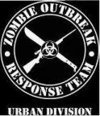Herbert E. Meyer served during the Reagan Administration as Special Assistant to the Director of Central Intelligence and Vice Chairman of the CIA’s National Intelligence Council.
His article is HERE but I thought that his description of Reagan was worth mentioning since Reagan defeated the Soviet empire, an act thought impossible in our lifetimes, if ever, in fact, many (if not most) of the intellectuals, politicians, and great thinkers of the American left and media anticipated their eventual defeat of the West.
Excerpt: The key to producing good intelligence lies in getting this combination of information and insight right. Intelligence work is like science. You don’t collect information randomly and then stare at it in hopes that something important will pop up. You start with a thesis—in other words, you decide what you want to know. Then you send your collectors out to get it. This is why the key to producing good intelligence lies in asking the right question, rather than in just poring over what’s been randomly collected in hopes that somewhere in the pile of reports and intercepts on your desk you’ll spot something important.
Let me give you an example of how this worked during the Reagan administration.
From the end of World War II until 1981, every president’s objective had been not to lose the Cold War. If things were no worse when a president left office than when he took office, he’d done a good job. But President Reagan didn’t want to tread water—he wanted to win the Cold War. In other words, he switched from defense to offense. So Reagan’s great director of Central Intelligence, William Casey, asked the CIA’s Soviet Division two obvious questions: Where is the Soviet Union weak? and Where is it most vulnerable? The answer he received was: We don’t know. No one’s ever asked this before. Our spies had been so focused on Soviet strengths—infantry divisions, nuclear missiles, tanks, submarines, and so forth—that we had no intelligence on Soviet weaknesses, such as its imploding economy.
Under Casey’s leadership, we refocused our collection efforts and, not surprisingly, found all sorts of Soviet vulnerabilities that hadn’t been grasped because no one had bothered looking for them. President Reagan used these weaknesses and vulnerabilities to put more and more pressure on the Kremlin. Eight years later the Berlin Wall came down, and two years after that the Soviet Union ceased to exist.
His article is HERE but I thought that his description of Reagan was worth mentioning since Reagan defeated the Soviet empire, an act thought impossible in our lifetimes, if ever, in fact, many (if not most) of the intellectuals, politicians, and great thinkers of the American left and media anticipated their eventual defeat of the West.
Excerpt: The key to producing good intelligence lies in getting this combination of information and insight right. Intelligence work is like science. You don’t collect information randomly and then stare at it in hopes that something important will pop up. You start with a thesis—in other words, you decide what you want to know. Then you send your collectors out to get it. This is why the key to producing good intelligence lies in asking the right question, rather than in just poring over what’s been randomly collected in hopes that somewhere in the pile of reports and intercepts on your desk you’ll spot something important.
Let me give you an example of how this worked during the Reagan administration.
From the end of World War II until 1981, every president’s objective had been not to lose the Cold War. If things were no worse when a president left office than when he took office, he’d done a good job. But President Reagan didn’t want to tread water—he wanted to win the Cold War. In other words, he switched from defense to offense. So Reagan’s great director of Central Intelligence, William Casey, asked the CIA’s Soviet Division two obvious questions: Where is the Soviet Union weak? and Where is it most vulnerable? The answer he received was: We don’t know. No one’s ever asked this before. Our spies had been so focused on Soviet strengths—infantry divisions, nuclear missiles, tanks, submarines, and so forth—that we had no intelligence on Soviet weaknesses, such as its imploding economy.
Under Casey’s leadership, we refocused our collection efforts and, not surprisingly, found all sorts of Soviet vulnerabilities that hadn’t been grasped because no one had bothered looking for them. President Reagan used these weaknesses and vulnerabilities to put more and more pressure on the Kremlin. Eight years later the Berlin Wall came down, and two years after that the Soviet Union ceased to exist.


























































No comments:
Post a Comment